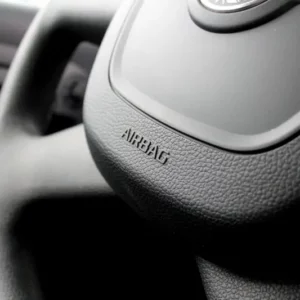Does gas make you weigh more? Do you ever wake up with a flat stomach and by the end of the day find you can’t even button your pants around your fat bloating belly? Did you gain weight in one day? How did that happen so fast? Yes, it’s possible that your clothes don’t fit because you’ve been slowly gaining weight, but the cause could also be something simpler. It could be bloating.
Does Gas Make You Weigh More?
Whether that belly bloat actually translates into extra pounds depends on what’s causing it.
“If the bloat was caused by gas—for example, you ate really fast and swallowed a lot of air, drank carbonated beverages, chewed gum, or consumed too many cruciferous vegetables like cauliflower and Brussels sprouts (or one of these five other health foods that can make you feel bloated), then you won’t weigh any more than usual—you’ll just feel like you do,” says Zumpano.
Once the gas makes its way out of your system, your jeans will fit the same way they did before.

On the other hand, if the stomach pooch is the result of a binge (in which case you should check out these tips on how to get back on track after overeating), it’s your PMS week and your body is doing its usual water-retention thing, or you’re constipated, you’ll probably see an uptick on the scale.
Don’t panic: It won’t be more than a few pounds at most, and once your body digests the extra food or your period arrives, that extra weight will be gone too, says Zumpano. (You’d have to overeat on a consistent basis to see long-lasting effects on your poundage.)
The Difference Between Bloat and Fat
Let’s get this piece of the puzzle out of the way first, and then we’ll tackle bloating on its own.
Many people don’t realize that there’s a difference between bloating and weight gain. Bloating may occasionally add a pound or two, but it doesn’t actually signify weight gain.
A simple way to tell the difference between bloating and weight gain or fat is how your stomach looks and feels. If your stomach is tight and hard, then bloating is the cause. If your stomach is soft and thick, then that’s fat.
If it’s fat, there are plenty of approaches you can take to slimming down. Here we’ll take a deep dive into bloating.
Why Am I Bloated?
Bloating is a temporary condition that occurs when you have a gas build-up in your digestive and excretory tracts.
Here are some bloating causes to consider.
Hormones
Ladies, have you ever noticed that you feel puffy and uncomfortable around your period? That’s because your period is basically caused by a hormone imbalance. And when your hormones are out of balance, you can get bloated. Add water retention to the bloat, and you’ve got yourself some temporary weight gain too.
Bloated After Eating
Even kids know that beans can give you gas!
Remember the kid’s rhyme, “Beans, beans the wonderful fruit. The more you eat, the more you toot!” It’s a good reminder that what you put in your body affects all of your body systems, and food definitely affects the gases in your stomach.
Foods that cause bloating can of course be healthy ones. Cruciferous vegetables like broccoli, cauliflower, kale – and even too much fiber – can cause bloating, too. Some foods are naturally gas-forming, which isn’t usually an issue unless you’re more sensitive to them. Then you can get too much gas stuck in your system and get bloated!
Gulping air
Even though you may never have thought of gulping air as a bloating cause, it makes perfect sense. If you chew a lot of gum, eat too quickly, or drink a lot of carbonated beverages, you’re consuming extra amounts of air.
The air travels down to your stomach and then has nowhere to go but up or down. While it’s waiting to escape, it can cause your stomach and intestines to bloat, and you then feel uncomfortable and tight.
Dehydration
Is your skin dry? Have you been constipated? Is your urine dark and like the color of iced tea? Then you’re dehydrated, and if you aren’t already bloated, then you will be soon.
Medical conditions
loating isn’t always a stand-alone condition. Sometimes it is a symptom of another medical condition like.
- Crohn’s disease
- irritable bowel syndrome (IBS)
- ulcerative colitis
- constipation
- lactose intolerance
- food allergies
- gluten intolerance
- infections
- bowel obstruction
- dysbiosis
- low stomach acid
- maldigestion
Need Some Relief? Here’s How to Get Rid of Bloating
As with any other symptom or condition, the best way to relieve bloating is to identify and address the underlying cause.

One of the best ways to do this is to pay attention to what you are eating and how you are eating it – and make notes in a food journal.
Include the food you ate, what you drank, and if you drank something while you were eating.
In addition, note how you ate. For example, did you eat in the car on the way to a meeting? Did you eat in a leisurely manner in your favorite spot? Did you shovel food down your throat before the baby woke up?
Also, note how you felt after you ate.
Was your stomach tight? Were you gassy? Did you have to unbutton your pants? After a week or two, you’ll probably notice some patterns and can start to determine what is causing the bloating.
Bloating Remedies
Relieving bloating caused by food or air intake is quite straight-forward.
- Once you find out what foods are triggering the bloat, consider working with a nutritionist to determine why those foods are causing bloating. Avoiding them does not solve the root problem and can increase your risk for gut dysbiosis and nutrient insufficiencies.
- Incorporate more gut-healthy foods like kefir, kimchi, sauerkraut, and yogurt into your diet to strengthen your gut bacteria.
- Slow down and take your time eating. Put your fork or spoon down between bites, and don’t multitask while eating.
- Take smaller bites and consume smaller portions more frequently throughout the day.
- Take a short walk or practice some light movement post-meal to encourage gas to pass through your digestive system.
- Regularly enjoy some peppermint or ginger tea, or grab a ginger shot from your favorite fresh juice bar.
- Drink plenty of water! But don’t eat and drink at the same time as this will dilute your stomach acid and increase your risk for bloating. Instead, try drinking a glass of water 30 minutes before your meal. This can help prevent bloating, promote digestion and make you feel fuller.
The great thing about these bloating remedies is that they can also assist you in the battle against weight gain!
If the underlying cause is not what you consume or how you consume it, then it’s time to take stock of any other symptoms that you’ve been experiencing alongside the bloat and visit your doctor. Your doctor will then be able to assist you in determining what’s going on and if you have an underlying medical condition that needs to be treated.
FAQs
How much does gas add to your weight?
Gas volume is not a weight factor. This is because gas is not solid or liquid and has no volume.
Does gas take up weight in your body?
Passing gas has no effect whatsoever on weight, other than the fact that it can clear a room.
Why am I gaining weight so fast all of a sudden?
People with medical conditions, such as heart failure, kidney disease, liver disease, or those taking certain medications may experience this type of weight gain. But it’s also possible that your diet could be leading to fluid retention – for example, if you’re eating too many salty foods.
Above is information about Does gas make you weigh more? that we have compiled. Hopefully, through the above content, you have a more detailed understanding of The difference between bloat and fat. Thank you for reading our post.









